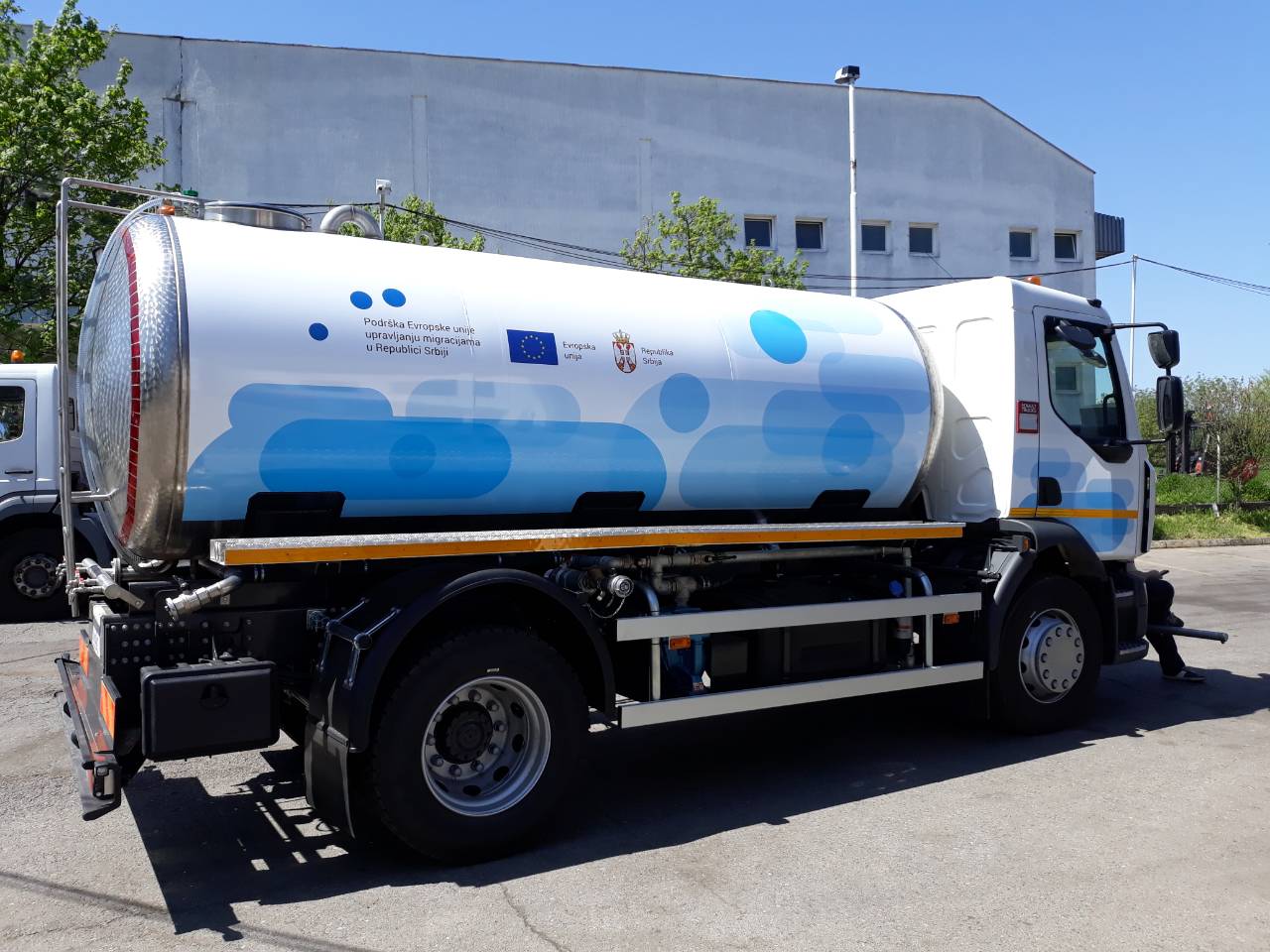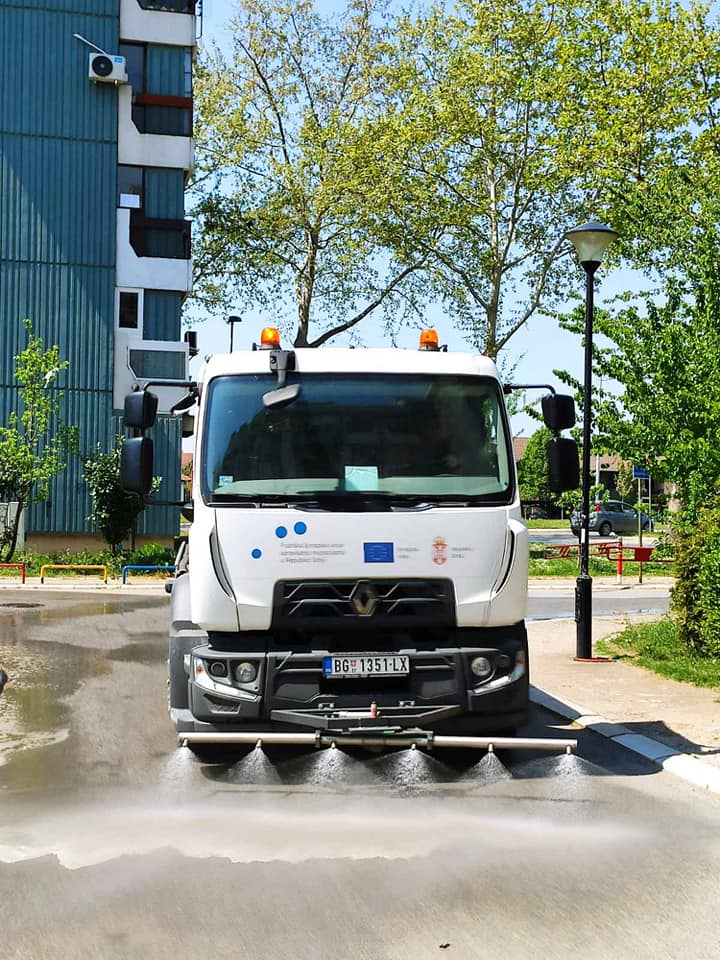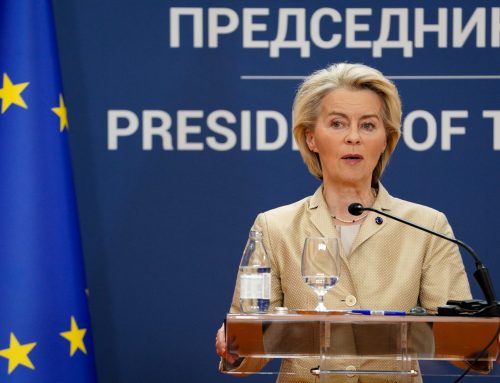The battle against COVID-19 isn’t fought only in hospitals. Workers that maintain public areas are also on the front line, in order to make our stay outside as safe as possible.
In Obrenovac, a joint action of disinfection of the entire municipality was recently carried out by PUC “Obrenovac” and PUC “Vodovod i kanalizacija”. Workers of these public utility companies disinfected the streets with the help of trucks that the municipality of Obrenovac received within the European Union Support to Migration Management in the Republic of Serbia.
One of the goals was to strengthen the local communal infrastructure in the municipalities that have the largest flow of migrants.
Some 4 million euros were invested in 18 municipalities in Serbia within the EU support to municipalities hosting migrants. The aim was to encourage acceptance and understanding of migrant / refugee issues in local communities. The implemented activities strengthened the relationship between the local population and migrants / refugees and improved the communal infrastructure and health system.
In addition to the results achieved under the EU Support to Migration management in Serbia, it is worth mentioning the project “XBIT – Cross-border IT network for competitiveness, innovation and entrepreneurship”. Thanks to the equipment obtained in that project, innovators from Serbia and Croatia made protective visors for health workers with the help of 3D printers.
Also, through one of the projects within the program “European Union Support to Inclusive Society”, in Ljig and Lajkovac, 35 people were trained and licensed to provide social protection services “Help at home”, equipment for caregivers was procured and three vehicles were purchased for field work. These caregivers are invaluable help to the elderly who, due to isolation measures during the epidemic, cannot take care of themselves.
The EU is the largest donor in Serbia in migration management. Since 2015, with the increased mixed migration flows to Serbia, the EU has donated more than EUR 117 million worth of assistance to state institutions, local self-governments, international and civil society organisations and other beneficiaries.
From the onset of the increased influx of migrants to Serbia, the EU has supported the functioning of reception centres. Food, running costs of the centres, transport to schools, health care services and staff are also funded with EU assistance.
Furthermore, the EU works together with national authorities in improving migration management capacities, namely with the Commissariat for Refugees and Migration to establish the system for managing accommodation capacities in line with international and EU standards.





